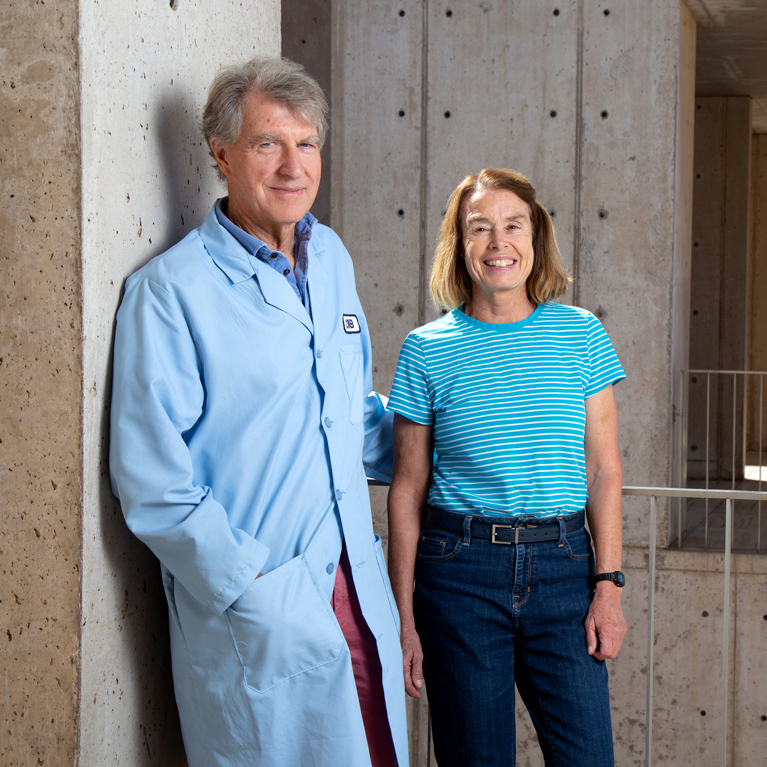
"Researchers at the University of Texas (UT) reported Tuesday that they have developed a vaccine that could arm the body to attack Alzheimer's plaques and tangles before they even start to shut down the brain. They hope to begin testing the vaccines in humans soon. Their new vaccine for the first time has targeted both amyloid-containing plaques and tau—both considered hallmarks for a definitive identification of Alzheimer’s disease—in a mouse with the disease. The shot uses DNA from Alzheimer's proteins to teach the immune system to fight these compounds and keep them from accumulating in the brain. Researchers say their new Alzheimer's vaccine—so-called DNA Aβ 42 —could conceivably cut the number of dementia cases in half."
Posts published in “Research”

"When your mom told you to eat your veggies and drink your orange juice, she was on to something: They may help preserve your brain health, new research suggests. A 20-year study of men who were health professionals tied a diet rich in leafy greens, orange and red vegetables, berries and orange juice to reduced risk of memory loss, or 'cognitive function.'"

"Elevated cerebrospinal fluid (CSF) neurofilament light levels (NfL) are associated with an increased risk of mild cognitive impairment (MCI), indicate findings from a population-based study. Among 648 individuals without cognitive impairment, those in the highest quartile for CSF NfL had a significant 2.9-fold increased risk for developing MCI, compared with those in the lowest quartile, after taking into account age, sex, level of education and comorbidities. The risk increased further still to 3.1-fold after additional adjustment for apolipoprotein E (APOE) genotype."
Bacteria in brain samples of people with Alzheimer's was found by a U.S. scientist using an electron microscope and is further proof that a microbe may trigger the disease.
NAPLES, Fla. (PRWEB) November 14, 2018"The suspects have been reliably placed at the crime scene," says Leslie Norins, MD, PhD, analyzing the accumulated evidence that microbes inhabit or visit the brain and likely trigger Alzheimer's disease.
Dr. Norins is CEO of Upon analyzing the accumulated evidence that microbes inhabit or visit the brain and likely trigger Alzheimer's disease.
Alzheimer's Germ Quest, Inc., is an independent advocacy group for Alzheimer's research.
It sponsors a $1 million challenge award for the researcher who proves an infectious agent is the root cause of Alzheimer's disease.

"While the benefits of music therapy are becoming more well-known, music therapist Meghan Ross says caregivers and family members of patients with Alzheimer’s disease or related dementias still are surprised when they see the results firsthand. `A staff member recently walked by one of my groups and said, ‘I can’t believe this person was smiling and singing with you. They looked so engaged, and I haven’t seen them like that,'` says Ross, who works with residents at Oaknoll Retirement Community in Iowa City. 'They got to see a resident engaging and in a bright mood when normally they are very anxious.'"

"New Salk research has now identified a unique subclass of these compounds, dubbed geroneuroprotectors (GNPs), which are AD drug candidates and slow the aging process in mice.
From these, the team synthesized three AD drug candidates based upon their ability to protect neurons from multiple toxicities associated with the aging brain."

"Alzheimer's disease (AD) is a progressive, neurodegenerative condition in which individuals exhibit memory loss, dementia, and impaired metabolism. Nearly all previous single-domain studies to treat AD have failed, likely because it is a complex disease with multiple underlying drivers contributing to risk, onset, and progression. Keine et al. explored the efficacy of a multidomain therapy approach based on the disease risk factor status specific to individuals with AD diagnosis or concern. Their findings indicate previously unidentified connectivity between AD risk factors, suggesting that treatment regimens should be tailored to the individual, and should be multi-modal to simultaneously return risk factors to a normative state. If successfully performed, the possibility to slow progression of AD and even reverse aspects of cognitive decline may become achievable."
![]()
n the fight against Alzheimer’s disease, early detection is particularly important.
If the still incurable dementia is diagnosed at an early stage, drugs can at least slow down its progression.
The researchers trained their artificial intelligence using data from the Alzheimer’s Disease Neuroimaging Initiative (ADNI).
Among other things, this data collection contains thousands of PET images of Alzheimer’s patients in very early stages of the disease.
Sohn describes the result as follows: “The algorithm was able to reliably identify every case that later led to the outbreak of Alzheimer’s disease”.

"Genetics may predispose some people to both Alzheimer's disease and high levels of blood lipids such as cholesterol, a common feature of cardiovascular disease, according to a new study by an international team of researchers led by scientists at UC San Francisco and Washington University School of Medicine in St. Louis. The research analyzed genome-wide data from over 1.5 million individuals, making it one of the largest-ever studies of Alzheimer's genetics. The author hope the findings will lead to improved early diagnosis and potentially new preventative strategies for Alzheimer's disease, which currently affects 5.7 million people in the U.S. and has no cure."

"A sub-category of glaucoma is referred to as normal tension glaucoma (NTG) because the intraocular pressure of these patients remains within a normal range, but damage to the optic nerve occurs by some other means. Alzheimer’s disease (AD) has become a recent topic of study in relation to NGT, because of their similarities as chronic, progressive conditions. In a new study, researchers compared the incidence rate of Alzheimer’s in patients with normal tension glaucoma to those without NGT in order to help clarify inconsistent findings of similar studies performed in the past. They gathered data from the National Health Insurance Research Database (NHIRD) in Taiwan and analyzed it for patterns between the two conditions over a period of 13 years."
